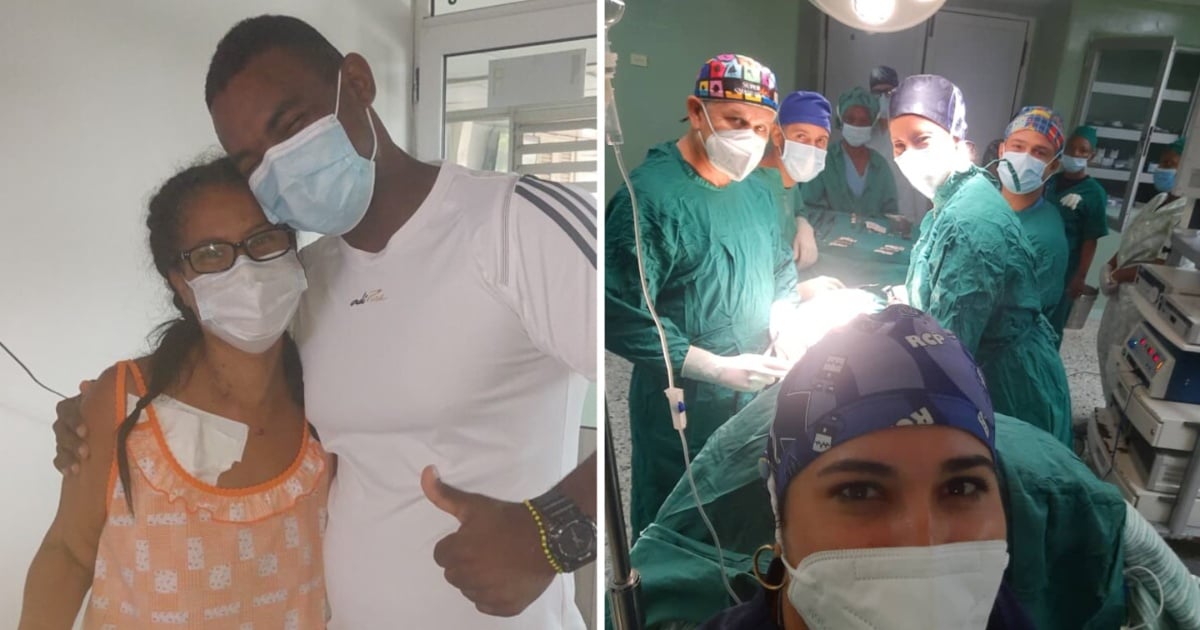This Friday, the Cuban government proudly announced a high-risk kidney transplant conducted at the "Dr. Abelardo Buch López" Institute of Nephrology. The procedure involved a 28-year-old man who donated a kidney to his 50-year-old mother, a social worker from Matanzas suffering from chronic kidney disease and undergoing hemodialysis.
According to a report from the Ministry of Public Health (MINSAP), the operation was executed by a multidisciplinary team of surgeons, nephrologists, urologists, anesthetists, and nursing staff. Medical authorities praised the procedure as a shining example of what can be achieved through the combination of "science, determination, and love."
The donor, Evelio Joel Hernández Martínez, a former player for the Matanzas Cocodrilos baseball team and a graduate in Physical Culture, successfully underwent surgery despite his robust physique, which presented a surgical challenge. His mother, Misleivy Martínez Zulueta, was operated on immediately afterward and is currently recovering well in intensive care.
Dr. Christian Leyva de la Torre, head of the transplant unit, emphasized that this intervention is part of an effort to "revitalize" transplant activities in Cuba, which have been severely affected by a crisis that left many patients without this critical procedure.
Dr. Raquel Rondón Reytor, head of the operating room, highlighted the complexity of such procedures, requiring extensive logistics, numerous supplies, and full dedication from the medical staff.
Expressing her gratitude, the patient shared, "It was his decision. It was hard to accept because it's not easy, but he was always very willing. I know he's a great person, and now he's my savior."
This case, widely publicized by state media, is being used by the government to showcase the achievements of the health system amid a profound health and economic crisis. However, the celebration contrasts starkly with recent reports of Cuban children and young adults with renal failure unable to receive transplants due to shortages of supplies, infrastructure, and political will.
Parents and doctors warn that many minors remain on waiting lists with no scheduled surgery dates, as the country faces a severe shortage of medical supplies and hospital equipment. Specialized surgical activities for transplants have plummeted in Cuba, and although the government claims to be making efforts to revive them, material conditions remain inadequate.
Most successful cases, like this mother-son transplant, rely on extraordinary measures and do not reflect the general reality of the system, which currently neglects vulnerable groups such as pediatric patients. The lack of equitable healthcare access, combined with state centralization and propaganda, leaves many children and families without the resources or support needed to receive life-saving treatments.
Challenges in Cuba's Healthcare System
What was significant about the kidney transplant mentioned?
The transplant was significant as it involved a high-risk procedure with a son donating a kidney to his mother, highlighting the capabilities of Cuba's medical professionals in challenging scenarios.
Why is there criticism despite the transplant success?
Criticism arises because many children and young patients in Cuba are still unable to receive necessary transplants due to shortages in medical supplies, equipment, and political will, highlighting systemic inequalities.
How does the government use such medical achievements?
The government uses these medical achievements to promote the successes of the national health system, often overshadowing the broader issues of scarcity and access faced by many citizens.
